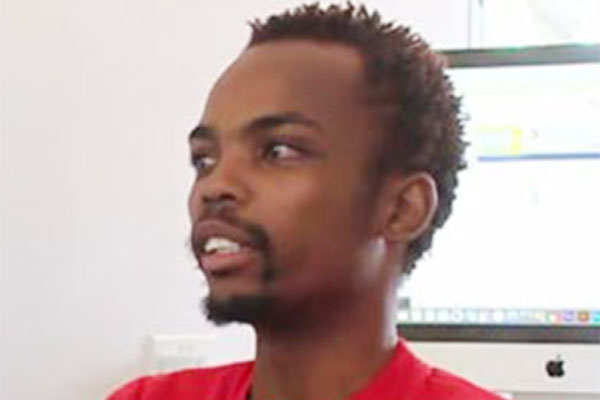
By Kennedy Nyavaya

Producers of comic socio-political skit Bustop TV have begun working on the second season of a new online talk-show meant to promote candid discussions among society’s marginalised, experts and public officials.
Titled The People’s Bus, a cutting-edge series where citizens, randomly picked on Harare’s streets, have pre-recorded conversations on topical issues, already has 27 ready episodes marking the first season.
In an interview with Standard Style, director of the show Lucky Aaron (pictured) said it provides a new unique public sphere that allows citizens to be heard during deliberations with public officials in a spontaneous minibus dialogue.
“The main objective of Bus Stop TV is to amplify voices from the marginalised areas that usually do not get media focus through developing and implementing a web-based arts-led news and dialogic interaction platform,” said Aaron.
This comes at a time when more people, particularly in urban areas, are ostensibly being rattled by everyday struggles they face particularly as a result of the current economic deterioration and political polarity.
Through its community partners, the bus dialogues will bring different aspects, relevance as well as expertise to help address some unexpressed perspectives, according to Aaron.
- Chamisa under fire over US$120K donation
- Mavhunga puts DeMbare into Chibuku quarterfinals
- Pension funds bet on Cabora Bassa oilfields
- Councils defy govt fire tender directive
Keep Reading
“It will also contribute towards inclusivity through being sensitive to unusual voices and listening to silence by harnessing the transformative power of the creative arts and accessibility to social media needs,” he said.
However, Aaron also bemoaned lack of enough equipment and the slow uptake by women.
“Technically, stuff has been bad for us because we do not have enough equipment to make the best show. Bad roads and potholes are also making our productions tricky and sometimes it’s difficult to get women in the bus,” he said.
“Women are sceptical to be part of key conversations because of fear of victimisation, but slowly we are getting there and people are getting to know the bus and realising that it’s a free space to dialogue.”
Meanwhile, Aaron promised that their future work would be bigger and better.
“Our second season will be well polished both from the technical and content side because we are always researching the best way to do it and hoping that we will address key themes,” he said.











